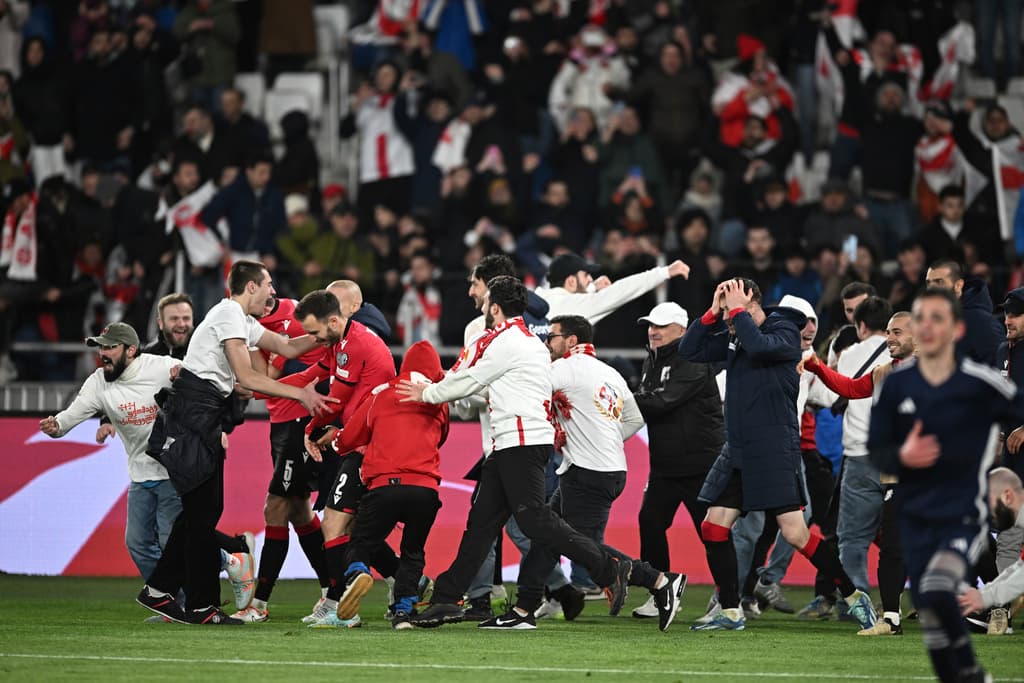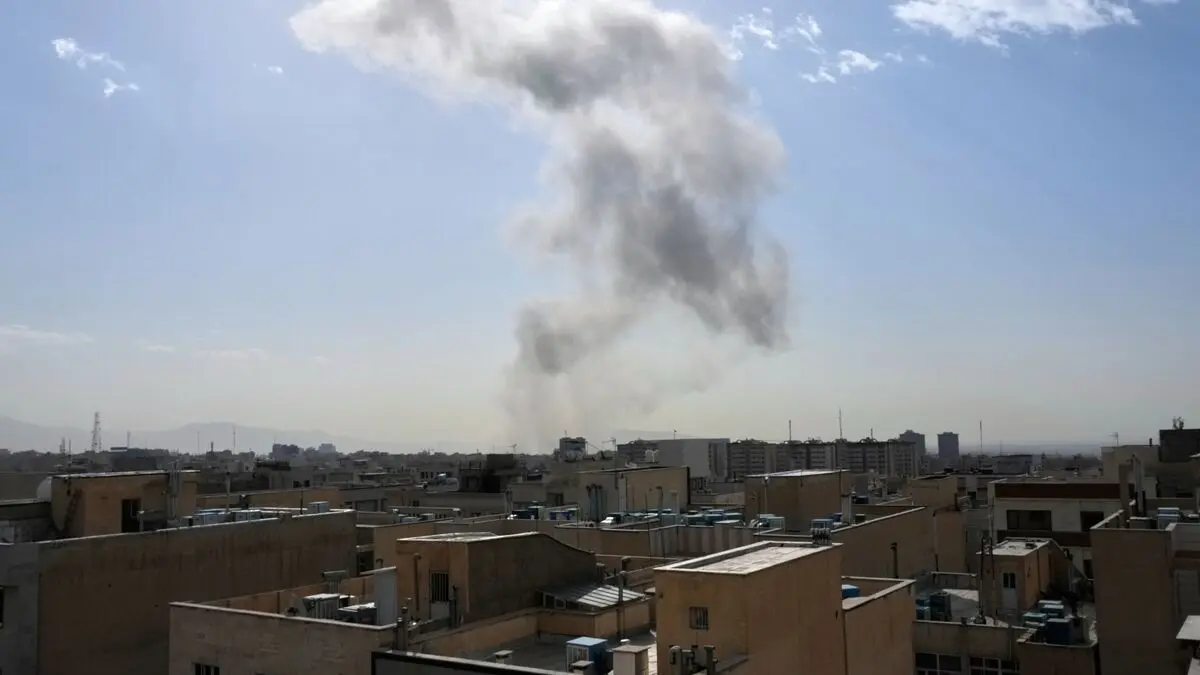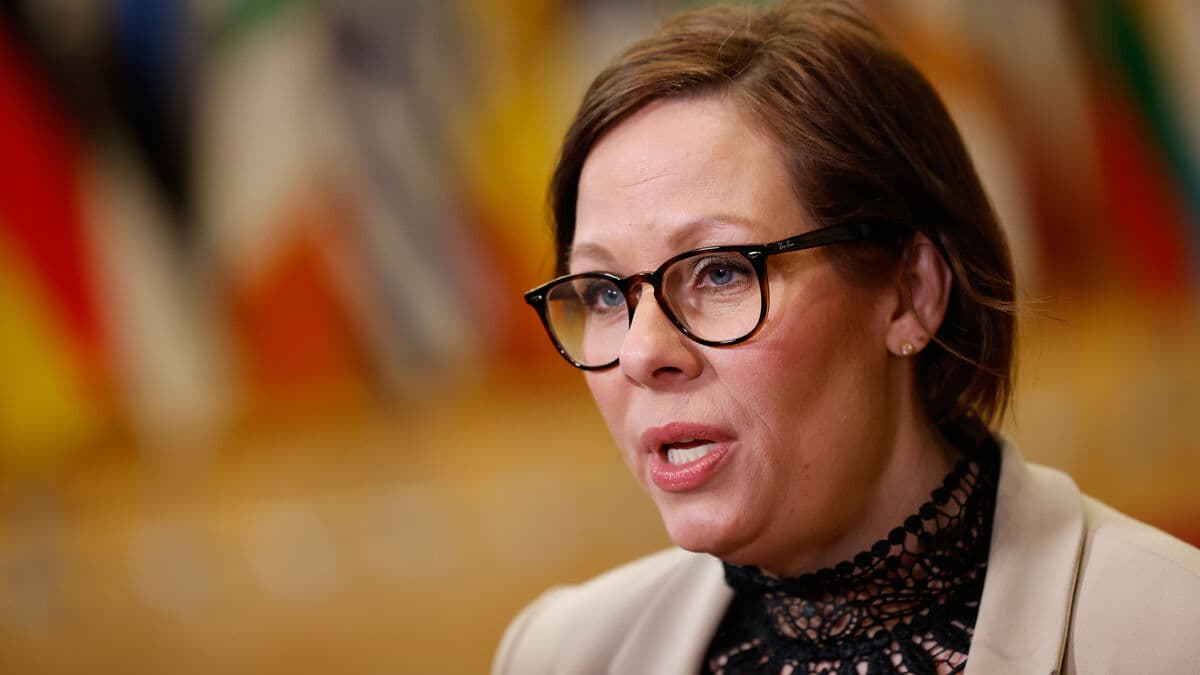Georgia is the European Championship's only debutant.
A historic success after many gloomy football years.
The Georgian people have waited a long time, says legend Zaur Svanadze.
Every year on 13 May, it is celebrated – in one way or another – in Georgia. It was on that day in 1981 that Dinamo Tbilisi won the Cup Winners' Cup after a late deciding goal against East German Carl Zeiss Jena. Georgia was then part of the Soviet Union, but the success was primarily seen as a Georgian triumph since the players were from the region. Therefore, every anniversary since then has almost been regarded as a holiday.
On the pitch that mythical day in Düsseldorf, Zaur Svanadze wore a Dinamo jersey. For a long time, it was the greatest success in Georgian football history – but since last spring, the date 26 March has been at least as important.
It's a big event in Georgia. Everyone was happy. The Georgian people have waited a long time, says Svanadze over the phone from Tbilisi.
"Haven't had any joy from football"
Thanks to a penalty shootout win over Greece in the qualifying final, Georgia secured a spot in the European Championship in Germany.
It was 1981 when people were last this happy, when Dinamo won the Cup Winners' Cup. Since then, Georgian supporters haven't had any joy from football. This was the greatest joy after that.
After his time as a player in Dinamo Tbilisi, Svanadze moved to Sweden to play in Västerbotten's Holmsund. Later, he ended his playing career in Gällivare-Malmberget, where he also began his journey as a coach. When he returned to Tbilisi, the Soviet Union had fallen, and Georgia had become an independent nation.
In purely footballing terms, the national team has long been far from qualifying for any international championship. Then things started to happen.
In 2020, Georgia was a North Macedonian goal away from playing in the European Championship. In 2024, the liberating triumph came.
Nika Kvekveskiri scored the penalty, the supporters stormed the pitch, and the celebration seemed endless.
It was incredible. The whole of Georgia partied all night, says Svanadze.
"Never had a player like that in Georgia"
Now, the 66-year-old is an assistant coach in the Georgian U21 national team and has seen more and more talents emerge. The brightest star is Khvicha Kvaratskhelia – or "Kvaradona" as he is called in Naples – who led Napoli to their first league title since Diego Maradona's glory days (1990).
We've never had a player like that in Georgia. He's a giant talent. If you walk around town, you see people wearing Kvaratskhelia's jersey. A very unique player.
Svanadze says that it's noticeable everywhere in Georgia that this is a historic European Championship and that very many people are planning to travel to Germany. He thinks that the newcomer can play in the European Championship without too much pressure.
I hope we play good football that everyone will enjoy, says Zaur Svanadze.
Georgia meets Turkey in the European Championship opener on Tuesday and will then face the Czech Republic and Portugal in the group.
This year's European Championship is the first time Georgia has qualified for an international senior championship as an independent nation.
The country was close to qualifying for the European Championship in 2021, but lost the decisive qualifying match against North Macedonia with the last goal. The revenge came in the qualifying for this year's European Championship, where Georgia won the qualifying final against Greece on penalties.
The national team is coached by French football legend Willy Sagnol. The big star is the speedy winger Khvicha Kvaratskhelia, who plays for Napoli.
At club level, the dominant force is Dinamo Tbilisi. No club has won the domestic league more times. In 1980–81, before Georgian independence, the team won the Cup Winners' Cup.
Former Milan player Kacha Kaladze has chosen a political path after his career. He has previously been vice prime minister in Georgia and is now the mayor of the capital Tbilisi.
Georgia is located in southern Caucasus, bordering Russia to the north, Azerbaijan to the east, the Black Sea to the west, and Turkey and Armenia to the south. The country is roughly twice the size of Småland and has 3.7 million inhabitants, with over a million in the capital Tbilisi.
The country was incorporated into Russia in 1801 but became independent again after the Soviet Union's collapse in 1991. The regions of Abkhazia and South Ossetia, however, are in practice under Russian control after breaking away through war in the 1990s.
Georgia has recently become a candidate for EU membership, but the new so-called agent law goes against several fundamental criteria for the country to become a full member.
A few opinion polls conducted in recent years have shown that a large majority of Georgia's population – more than four out of five – want the country to join the EU.






